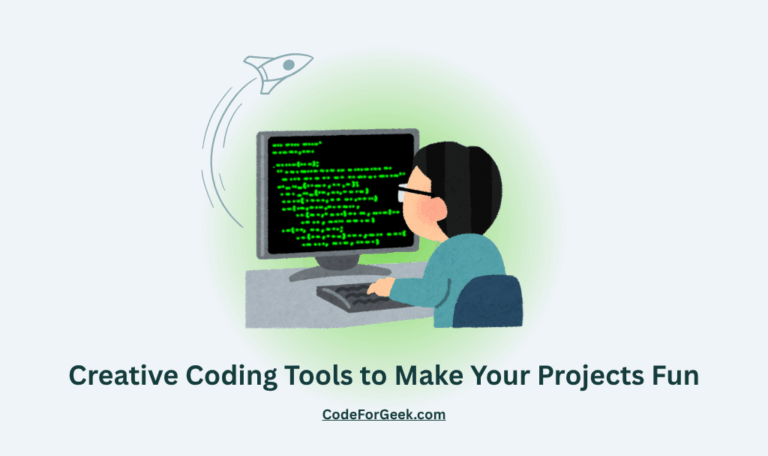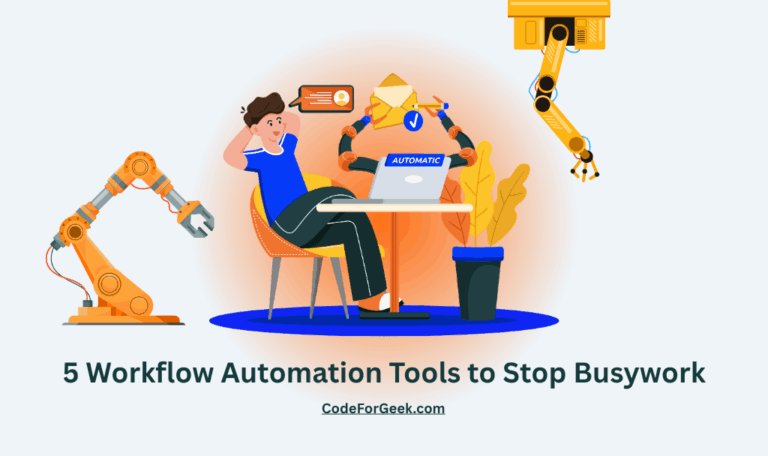Many companies need special apps for internal tasks, like a dashboard for sales or a tool to manage customer data.
Building internal apps from scratch takes a lot of time and money, which is why I use open-source low-code platforms. They let me build and launch these apps very quickly and save me hours of work.
There are many such low-code platforms available in the market, but here are some of the best open-source and beginner-friendly ones that I have personally used.
Quick Summary of My Top Picks
| Tool Name | Best For | Key Feature |
| Budibase | All-in-one simplicity | Built-in database and automations |
| Appsmith | Developer customization | Strong JavaScript integration |
| ToolJet | Complex logic | Supports JavaScript and Python |
| NocoDB | Data management | Turns databases into smart spreadsheets |
Best Open-Source Low-Code Platforms for 2026
Here are the four open-source low-code platforms I trust for building internal applications. I have chosen them because they are powerful, flexible, and give me full control over my applications and data.
1. Budibase

Budibase is a wonderful all-in-one platform. It is very easy to use. I use it when I need to build a simple app very fast. The best part is that Budibase has its own built-in database. This means I do not need to set up a separate database. I can design my data and build my app in one place. It also connects to other data sources like Postgres or MongoDB if you need them.
Budibase user interface builder is a simple drag-and-drop system. It also has powerful automation workflows to connect different steps. This is great for simple approval apps or data entry forms. Budibase is an excellent choice for teams that want to build apps quickly with less technical effort.
2. Appsmith
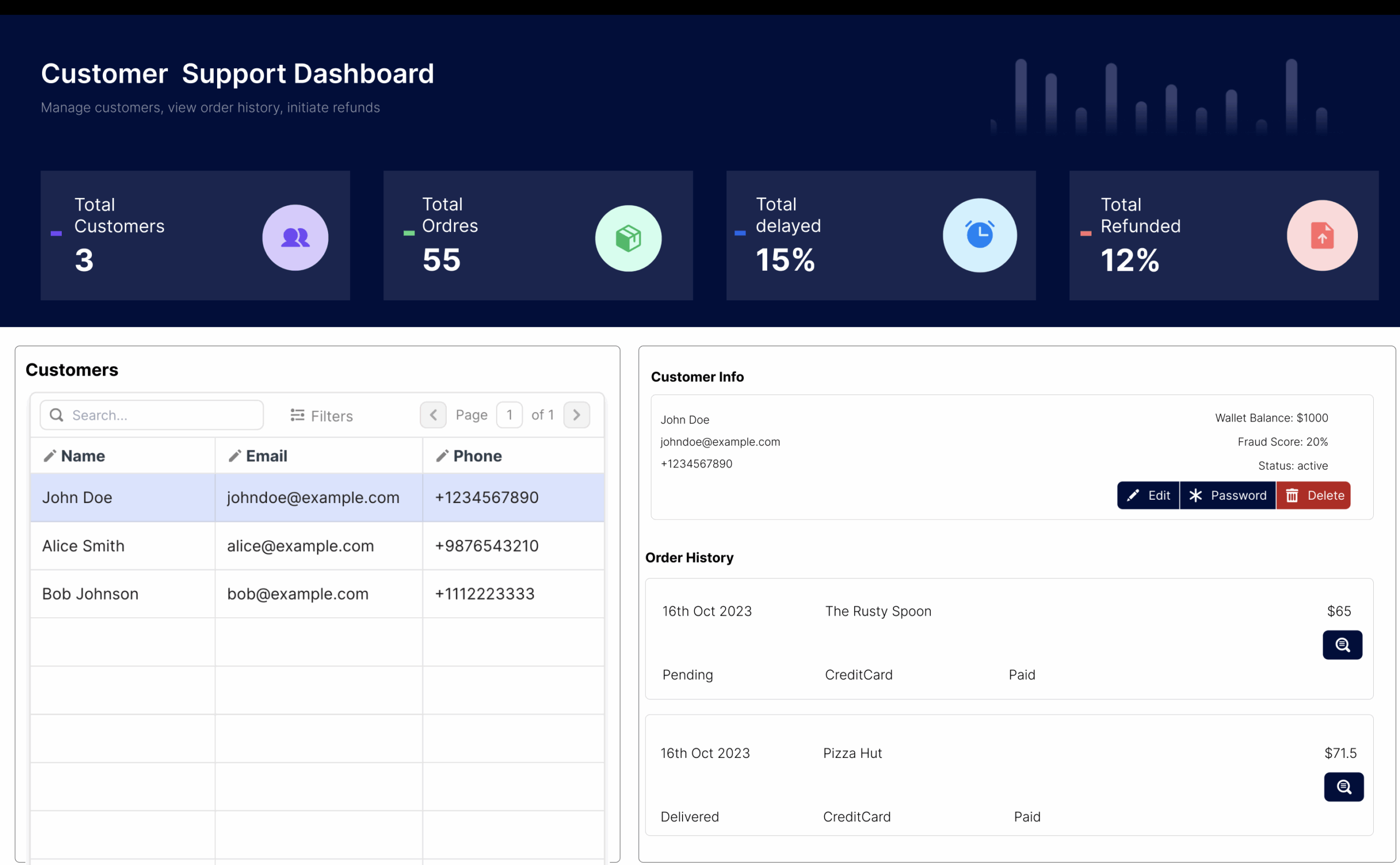
Appsmith is very popular and powerful. It is a favorite for many developers. I use Appsmith when I need more control and customization. It connects to almost any database or API you can think of. The main strength of Appsmith is that you can write JavaScript almost anywhere. You can write code to change data, control components, or run complex queries. This makes it very flexible.
Appsmith community is very large and active. You can find many tutorials and get help easily. It is perfect for building complex admin panels or dashboards that need to handle a lot of data and logic. If you are a developer, you will feel very comfortable with Appsmith.
3. ToolJet
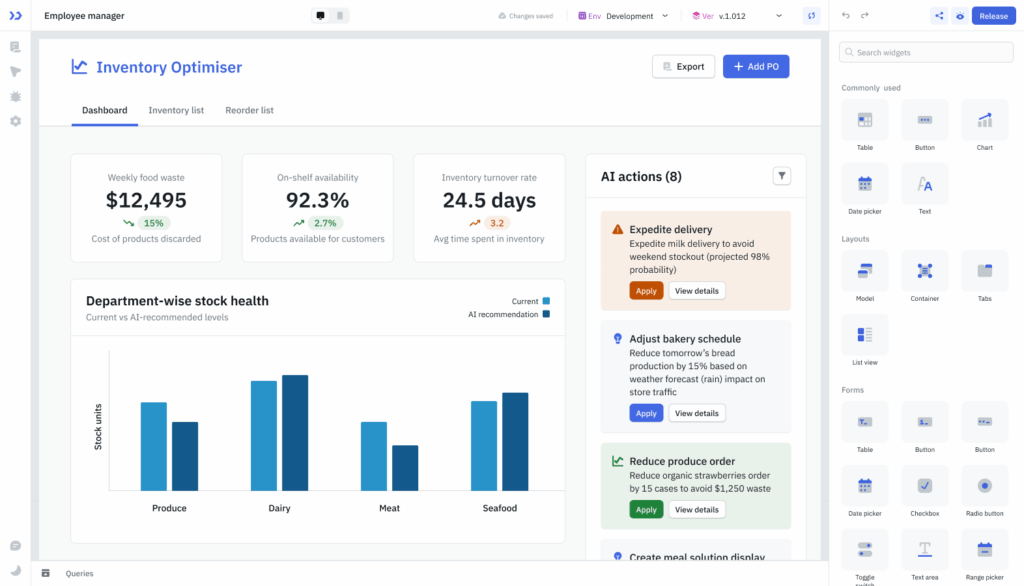
ToolJet is another excellent choice for developers. It is newer but growing very fast. Like Appsmith, it connects to many different databases and APIs. ToolJet is very useful when I need to run complex logic inside my app. An addon feature is that you can write code not only in JavaScript but also in Python. This is very helpful for data processing stuff.
ToolJet user interface builder is clean, fast and gives you good control. I think ToolJet has a very bright future. It is a great tool for building internal tools that need complex backend operations. The team is adding new features all the time.
4. NocoDB
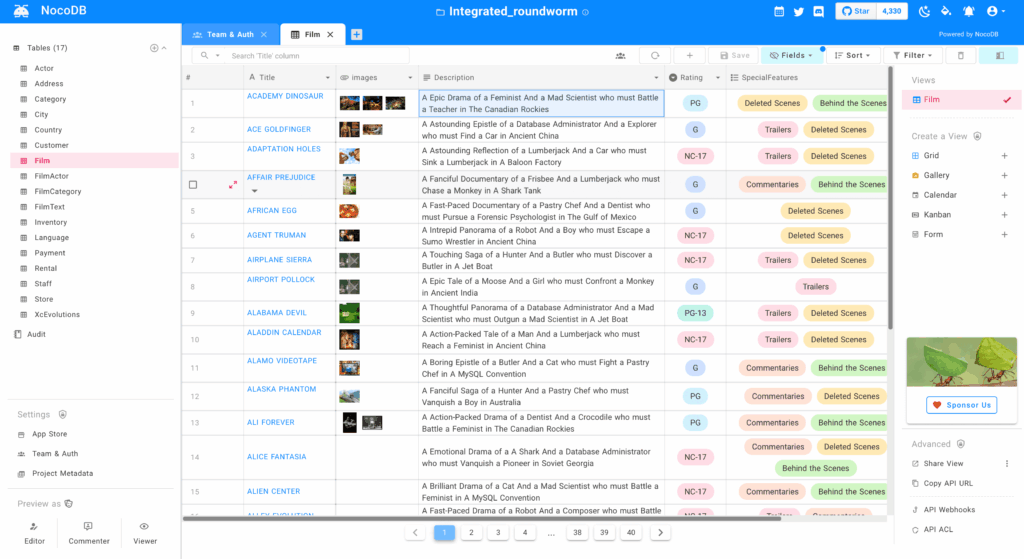
NocoDB is a little different from the others. Its main job is to turn your existing SQL database into a smart spreadsheet. Think of it like an open-source Airtable. You just connect NocoDB to your database. It instantly gives you a grid view, forms, and other views to manage your data. You do not need to build a separate admin panel. This has saved me so much time. I use it for all my projects where I need a simple way to see and edit database data. It is not for building complex apps but it is perfect for data management. It works with MySQL, Postgres, and other popular databases.
Frequently Asked Questions (FAQs)
-
What is a low-code platform?
A low-code platform is a tool that helps you build applications using a visual interface. You use drag-and-drop components instead of writing lots of code. This makes building apps much faster.
-
Why should I use an open-source platform?
Open-source means you can host the platform on your own servers. This gives you full control over your data and security. You also do not have to pay monthly fees for users. The code is available for you to see and even modify if you want.
-
Are these platforms good for big companies?
Yes many big companies use these tools. They are perfect for building internal apps like dashboards, admin panels, and support tools. They save the company time and resources.
-
Do I need to be a developer to use these tools?
It helps to have some technical knowledge. Tools like Budibase are easier for beginners. Tools like Appsmith and ToolJet are more powerful if you know some JavaScript. NocoDB is very easy for anyone to use.
-
Can I connect these tools to my own database?
Yes, all four of these open-source low-code platforms can connect to your existing databases. They support common databases like PostgreSQL, MySQL, MongoDB, and many others. They can also connect to APIs.
-
Are these tools really free?
Yes they all have a free open-source version that you can host yourself. This version is very powerful. Some companies also offer a paid cloud version if you do not want to manage the hosting yourself.
Conclusion
These four open-source low-code platforms are making app development much easier for everyone. Companies like Budibase, Appsmith, ToolJet, and NocoDB are doing a great job. They give us the power to build custom solutions without spending months on development. By offering open-source options, they give control back to developers and businesses. I am always excited to see what new features they will release. If you need to build an internal app, I highly recommend you try one of these platforms. They are all fantastic.


